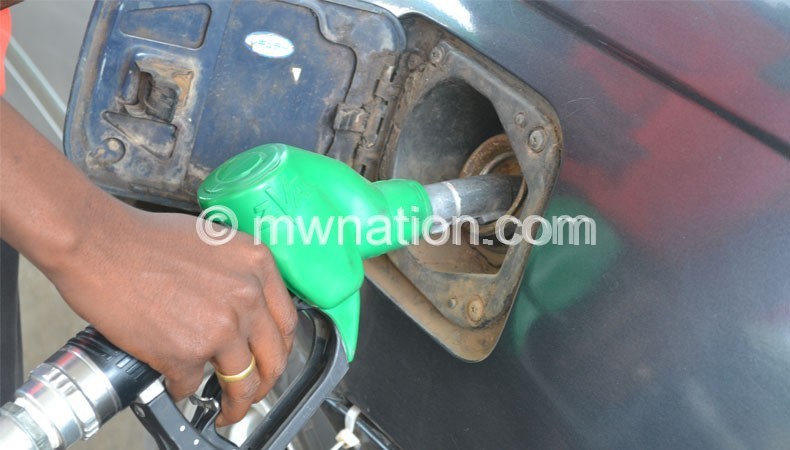Petrol price may go up in April—MERA
Malawi Energy Regulatory Authority (Mera) acting chief executive officer Elias Hausi has said the price of petrol may be adjusted upwards in April if the regulatory body does not have enough money in the price stabilisation fund (PSF).
Since Mera adopted the automatic pricing mechanism (APM) of fuel, prices are adjusted when the Inbond Landed Cost (IBLC) changes beyond the plus/minus five percent trigger limit.

Latest statistics from Mera seen by Business News show that in March, there is a percentage change of 11.28 percent on petrol, 4.04 percent diesel and 2.52 percent on paraffin, meaning petrol price will have to be adjusted upward.
Said Hausi: “If you look closely at the indicators, it is clear that the price of petrol needs to go up. However, we will be meeting with the energy pricing committee on April 7 where a decision will be made.
“During this meeting, we will look at the amount of money that we have in the price stabilisation fund to see if we can cushion the price so that it does not go up.”
He said if there will be less revenue in the fund, then the price might be adjusted upwards but he could not disclose by how much.
Hausi also said the recent increase of fuel price on the global market might also affect the country.
“In December, the trend was that fuel prices were going down but in February a barrel of fuel moved from $45 to $60 and this is a substantial increase.
“Our hope for prices to remain stable is that China must not start consuming more fuel again after we witnessed a reduction of fuel usage by this giant due to slow down in the manufacturing sector in that country,” he explained.
On the reduced uptake of fuel in the country, Hausi attributed this to large truck operators who are opting to buy fuel from neighbouring countries because prices are lower there.
“Our projections this year show that we were supposed to be consuming 25 million litres of petroleum products a month but we are only using 21 million per month because truck operators prefer fuelling outside the country.
“Apart from that, there is also the issue to do with blending of petrol and ethanol and I believe it is being done accordingly; hence, the statistics showing less uptake of fuel,” he said.
But Consumers Association of Malawi (Cama) executive director John Kapito said Mera should not increase fuel prices because the kwacha is stable and that global fuel prices of the commodity are also not going up drastically.
“With the way the price of fuel is on the global market, coupled with the stabilisation of the kwacha, I do not think it is the right time to increase fuel prices. I could have loved if the prices remained constant or even be reduced,” he suggested.
But Hausi countered, saying Kapito’s argument could only be true if the Free on Board (FOB) adjustment was at the same rate as the kwacha, which is not the case in this scenario.
“The FOB is the biggest determining factor that compels the fuel pricing committee to raise fuel prices,” said Hausi.
Malawians have enjoyed two fuel price reductions this year due to the lowering prices on the global market and the appreciation of the kwacha. n





